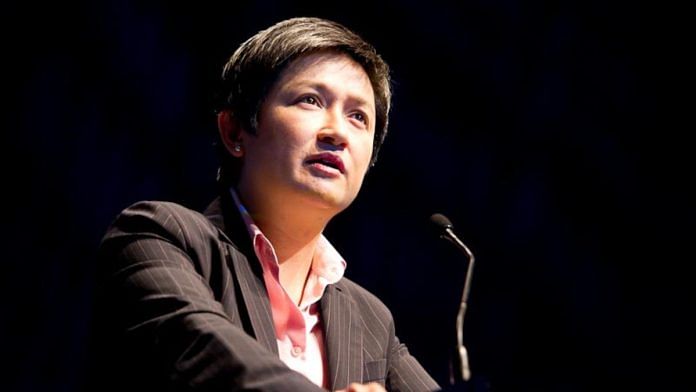New Delhi: Australian foreign minister Penny Wong has asserted the need for democratic principles and resilience against foreign interference, amid media reports of Indian intelligence personnel being expelled from the country over attempts to steal secrets about defence projects, airport security and trade relations.
Wong said Wednesday during a press conference that she and other ministers had stressed on the importance of their democratic principles, and the importance of ensuring “that we maintain the resilience of our democracy, including in the face of any suggestion of foreign interference, and we have laws to deal with that”.
At the media interaction with her South Korean counterpart Choe Tae-Yul in Melbourne, Wong added that Australia continued to deeply value the multicultural fabric of the community. “It is a strength and we welcome people’s continued engagement in our democracy.”
Ministry of External Affairs (MEA) spokesperson Randhir Jaiswal, however, has called the Australian media “speculative” and offered no further comments on them during a regular press briefing on Thursday. He described Australia as an “important country” with which India has “strong and vibrant relations.”
“They are partners in Quad… we have a large diaspora there, we have excellent trading relations… It is a very expansive relationship with Australia. We want to make it stronger and build on it further,” Jaiswal added.
ABC News and Sydney Morning Herald have reported that two Indian agents were among the “nest of spies” that Mike Burgess, the director-general of the Australian Security Intelligence Organisation (ASIO), referred to in his address on Annual Threat Assessments in 2021. The expulsion of the two Indian agents was first reported by The Washington Post on 29 April, 2024.
“The spies developed targeted relationships with current and former politicians, a foreign embassy and a state police service.They monitored their country’s diaspora community. They tried to obtain classified information about Australia’s trade relationships,” said Burgess in his 2021 address.
He added: “They asked a public servant to provide information on security protocols at a major airport. They successfully cultivated and recruited an Australian Government security clearance holder who had access to sensitive details of defence technology.”
Burgess went on to describe how the ASIO acted, first by cancelling the government employee’s security clearance followed by “quietly and professionally” removing the “foreign spies” from the country.
He made it clear in 2021 that the spies involved were not “from a country in our region” and did not name where they came from.
In his 2023 Annual Threat Assessment address, Burgess mentioned that some of the nations interfering in Australia were from those “considered as friends”, while others were “authoritarian” regimes.
“Multiple nations are using espionage and foreign interference to advance their interests and undermine Australia’s… Some of the governments doing these things are considered friends. Others are authoritarian regimes with values very different to ours,” said Burgess during his 2023 address.
Also read: Darfur’s El-Fasher is on ‘precipice of large-scale massacre’. What’s the conflict in Sudan
The reports from Australia, along with Canada and the US, highlighted the alleged role of Indian agents operating in Western democracies in recent months.
In an indictment in November 2023, the US Justice Department alleged that an Indian national, Nikhil Gupta, along with a co-conspirator “CC-1”, were involved in a murder-for-hire plot against Sikh extremist Gurpatwant Singh Pannun, which was thwarted by American agencies.
Gupta was eventually lured out of India to the Czech Republic and arrested by authorities in Prague, according to The Washington Post.
The American newspaper also named former R&AW officer Vikram Yadav as “CC-1” in the Justice Department indictment. The paper added that Yadav was linked with the killing of Hardeep Singh Nijjar, a designated terrorist in India, in June 2023 in Canada.
Three months later, Canadian Prime Minister Justin Trudeau announced that authorities were investigating “credible allegations” of a link between agents of the Indian government and the killing of Nijjar.
India said Canada’s allegations were “absurd and motivated” while announcing a high-level committee to investigate the evidence shared by the US in November 2023. The MEA also said the recent report by The Post was “speculative” and “irresponsible”.
(Edited by Tikli Basu)
Also read: ‘We’re all judged by what we do at home’ — India’s dig as pro-Palestine student protests divide US



